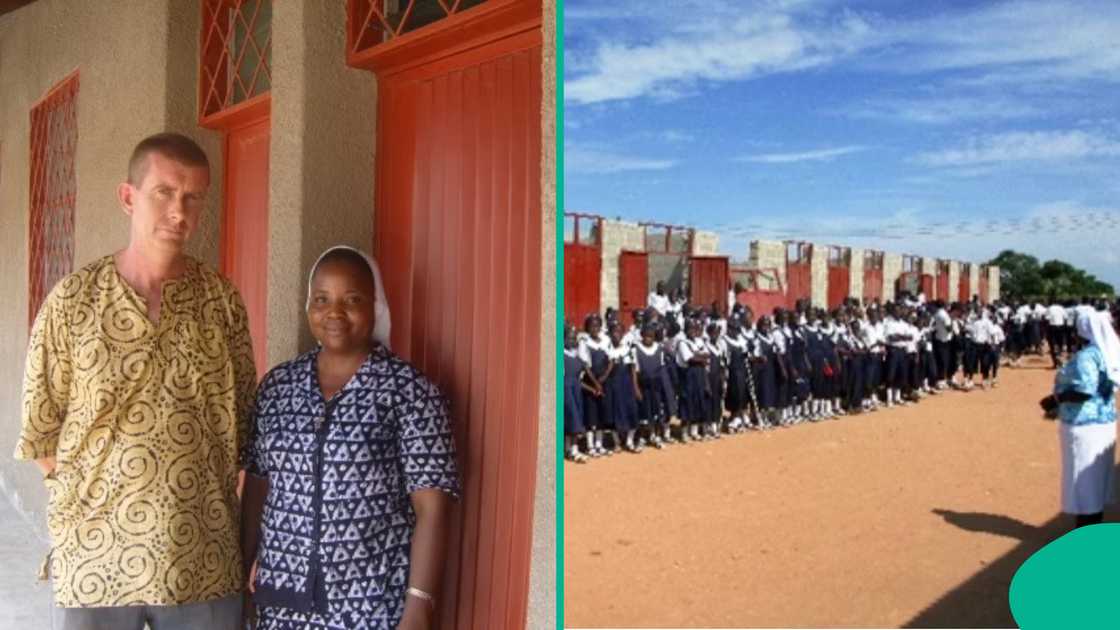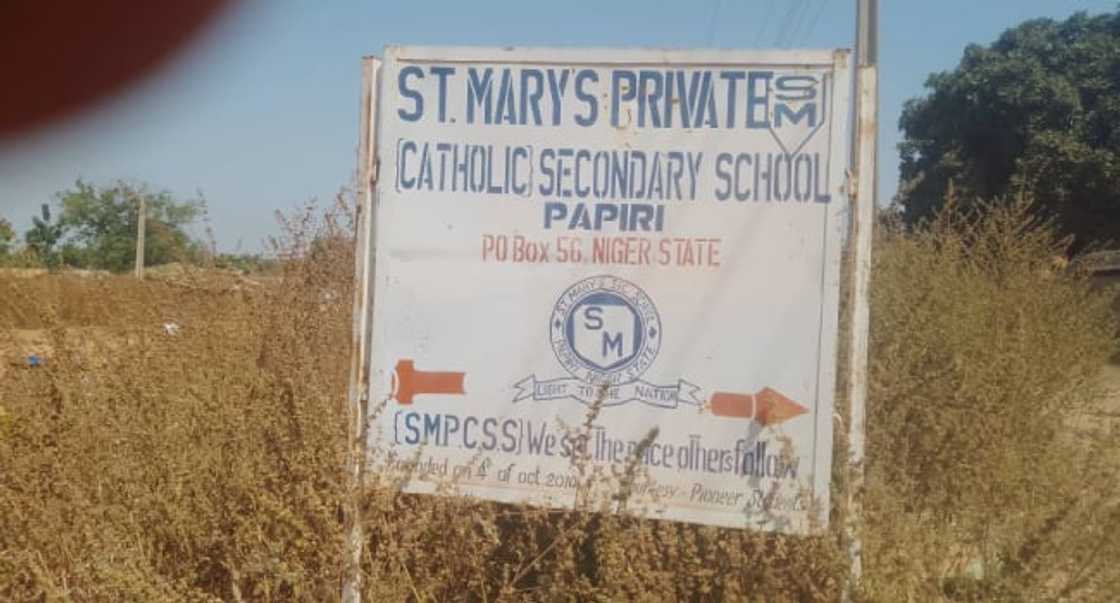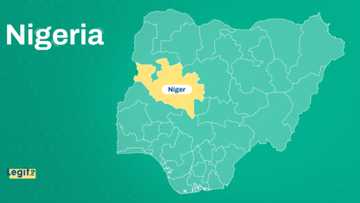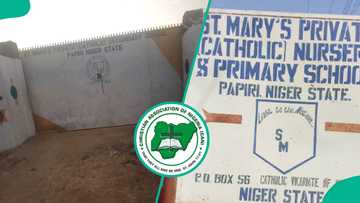Things to Know About St. Mary Catholic School Where Over 300 Children Were Abducted
- Hundreds of children were taken from St. Mary Catholic School in Papiri, North West Nigeria, in a mass abduction that shocked the country
- The school had stood as a beacon of hope for the Kamberi people, offering education and shelter in one of the most disadvantaged regions of Africa
- Its story revealed both the vulnerability of rural schools and the extraordinary impact education had brought to a community long denied such opportunities
The abduction of over 300 school children from St. Mary Catholic School in Papiri, North West Nigeria, shocked the nation and drew global attention to the vulnerability of schools in remote communities.
The incident highlighted not only the insecurity in the region but also the extraordinary role the school had played in transforming the lives of the Kamberi people. Here are key things to know about the institution.

Source: UGC
School location in remote Papiri village
St. Mary’s Primary and Secondary School was located in Papiri, a village in the far North West of Nigeria.
The area had no towns or cities nearby, and tarred roads did not exist. The landscape was described as rough and extreme, making access to the school difficult.
Primary school opened in May 2008
The primary school officially opened in May 2008. It marked the beginning of formal education for many Kamberi children who had previously been denied such opportunities.
Secondary school began in September 2010
The secondary school admitted its first group of students in September 2010. This expansion meant that children could continue their education beyond the primary level without leaving their community.
Built through Irish support
The school was built through the combined efforts of Fr. Donall Cathain, a SMA priest from Cork, Rowan Hand from Newry, and sponsors from Newry and across Ireland. Their contributions made education possible in one of Nigeria’s most disadvantaged regions.
Serving the Kamberi people
Fr. Donall had spent twenty years working among the Kamberi people in Niger state. The Kamberi were among the poorest of the poor in Africa, with little access to education across generations. The school became a lifeline for their children.

Read also
Davido’s fans cause gridlock on streets of Kogi to celebrate his birthday: “What's wrong with them?”
Farming lifestyle of Kamberi families
The Kamberi people survived through farming. They were semi-nomadic, moving from place to place, cutting down and burning trees before planting crops. Their homes were huts made of mud, sticks and straw, which provided cool shelter in the blistering summer heat.
Hunger for education
Education became a reality for the young Kamberi people, who showed an extraordinary hunger for learning. Observers noted that within a generation, these children could become doctors, nurses, teachers, engineers, priests, nuns and leaders in Nigeria.
Accommodation for pupils
Because many children lived hundreds of miles away, accommodation blocks were built to house them during the school year. Pupils received a new uniform, their own bed, three basic meals daily, and care from Sr. Paulina and the staff.

Source: UGC
£43,000 raised in 2010
In 2010, £43,000 was raised for the school. The funds were used to build both the primary and secondary school facilities, ensuring that the Kamberi children had access to quality education.
The abduction of over 300 children from St. Mary Catholic School underscored the risks faced by schools in remote Nigerian communities.
Yet the institution had stood as a beacon of hope, offering education, shelter and opportunity to some of the most disadvantaged children in Africa. Its story revealed both the vulnerability and resilience of education in regions where learning had once seemed impossible.
Names of 90 Chibok girls in captivity
Legit.ng earlier reported that eleven years after Boko Haram kidnapped 276 schoolgirls from Chibok in northeast Nigeria, 90 of them remain missing or in captivity, as confirmed by the UN Committee on the Elimination of Discrimination against Women (CEDAW) and EnoughisEnough (EiE) Initiative.
EiE published the full list of names on Facebook in April 2025, reigniting public concern over the fate of the girls.
Proofreading by Funmilayo Aremu, copy editor at Legit.ng.
Source: Legit.ng



